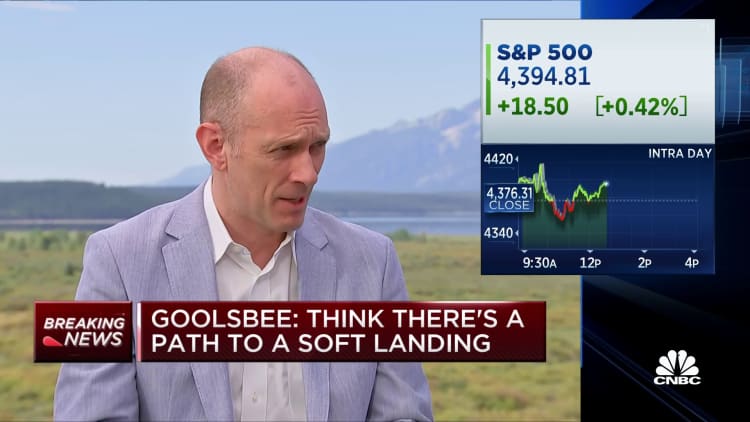Mainland Chinese and Hong Kong stocks led gains in the region, as Asia-Pacific markets started the final trading week of August higher.
Chinese authorities trimmed the stamp duty on stock trades, effective Monday. The finance ministry said the move was meant to "invigorate the capital market and boost investor confidence."
The benchmark CSI 300 surged 1.17%, while Hong Kong's Hang Seng index jumped 0.95%, led by consumer cyclicals and health-care stocks.
Shares of the world's most indebted property developer China Evergrande Group tumbled 87% as trade resumed after 17 months.
Japan's Nikkei 225 climbed 1.73% to end at 32,169.99 while the Topix was up 1.47%, closing at 2,299.81. South Korea's Kospi rose 0.96% to 2,543.41, while the Kosdaq advanced 1.11% to 909.38.
Australia's S&P/ASX 200 gained 0.63% to close at 7,159.8 after the country's retail sales climbed 0.5% month on month, higher than the 0.3% expected by economists polled by Reuters.
On Friday, U.S. Federal Reserve chair Jerome Powell said that inflation remains "too high" and that the central bank is "prepared to raise rates further if appropriate." All three major indexes rose, with the Dow Jones Industrial Average up 0.7%, the S&P 500 added about 0.7% and the Nasdaq Composite advanced about 0.9%. Both the S&P and Nasdaq snapped three-week losing streaks.
— CNBC's Pia Singh and Hakyung Kim contributed to this report




